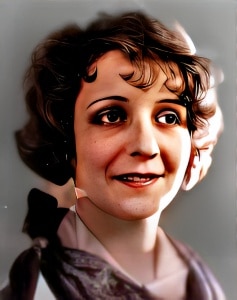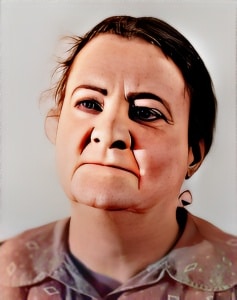 Betty Jewel, born on July 31, 1892, in Rock Springs, Texas, was an American actress who gained recognition during the silent film era.
Betty Jewel, born on July 31, 1892, in Rock Springs, Texas, was an American actress who gained recognition during the silent film era.
Her career in early Hollywood showcased her talent, adaptability, and contributions to the world of cinema.
Betty Jewel’s journey into the world of entertainment began during a transformative period in the film industry when silent films were the dominant medium of storytelling. This era required actors to convey emotions and narratives primarily through visual storytelling, making facial expressions and physical movements essential for effective communication.
One of the notable aspects of Betty Jewel’s career was her ability to excel in a wide range of roles. Her versatility allowed her to tackle various genres, from dramas to comedies and character-driven narratives. Her adaptability as an actress made her a valuable asset to the film industry.
One of the films that contributed to Betty Jewel’s recognition was “Laugh, Clown, Laugh” (1928), directed by Herbert Brenon. In this silent drama, she played the role of Simonetta, a character central to the film’s narrative. Her performance in this emotionally charged story added depth and authenticity to the film.
Betty Jewel’s contributions to early Hollywood extended to her role in “ The Silent Command” (1923), a silent drama film directed by J. Gordon Edwards. In this film, she played a pivotal role, showcasing her acting prowess and adaptability. “ The Silent Command” featured a suspenseful narrative with espionage elements, and Betty Jewel’s performance added depth and authenticity to the film.
The transition from silent films to sound films marked a significant change in the industry. Many silent film actors struggled to adapt to this new era, but Betty Jewel successfully made the transition, demonstrating her ability to evolve with the changing landscape of the film industry.
Betty Jewel’s career in early Hollywood was marked by her collaborations with notable directors and fellow actors. Her performances earned critical acclaim and contributed to the success of the films she appeared in. Her ability to engage with a diverse range of characters and narratives illustrated her versatility as an actress.
While her name may not be as widely recognized today as some of the leading actors of her time, Betty Jewel’s contributions to the silent film era and her successful transition to sound films remain a valuable part of the rich history of early Hollywood. Her talent and adaptability underscore her significance in the early years of American cinema.
In conclusion, Betty Jewel was an American actress who left her mark during the silent film era and successfully made the transition to sound films. Her adaptability, versatility, and ability to engage with a wide range of characters and narratives contributed to her recognition and success in early Hollywood. Her performances, including her role in “Laugh, Clown, Laugh,” showcase her talent and enduring impact on the world of cinema, even if her name is not as widely remembered today.
Loading live eBay listings...




